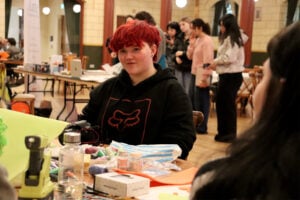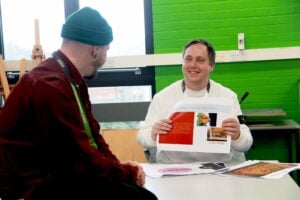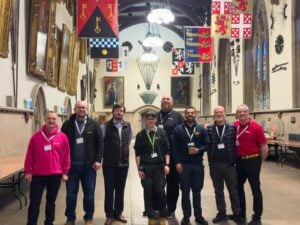Computing lecturer, Ross Millen, brings a wealth of experience to his role. His enthusiasm for the digital and hardware computing industry is evident in his teaching and design of EKC Dover College Computing and Digital courses.
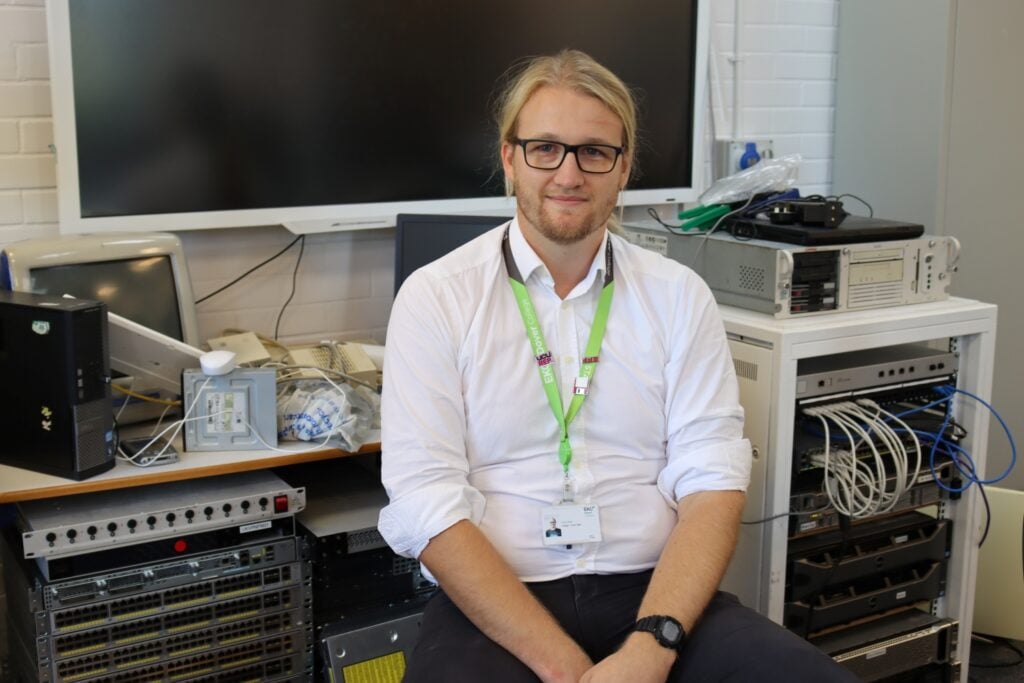
His experience as an audio-visual programmer, smart-system design programmer, and GCSE and A Level lecturer have led him to his role at the College.
Why do you like computers?
“I just enjoy finding out how stuff works; how computers work, how general technology works, how cars work, how electrical systems work, how all sorts of things work.
“Computers are complex and an accessible way of having that interest. If you’re younger and have an interest in how things work, it’s very difficult to convince someone to let you take a car to pieces. But it’s a lot easier for someone to say, ‘Oh, I’ve got an old laptop I’m going to throw away.’ That’s kind of always been my focus, where it’s been an accessible form of tinkering.
“That’s what I like to instil with the students as well. They have a computing club and an hour at the end of the week where I say to them, ‘Right, here’s the room full of all the old technology. Let’s do something.’ And they can just have a play with it.
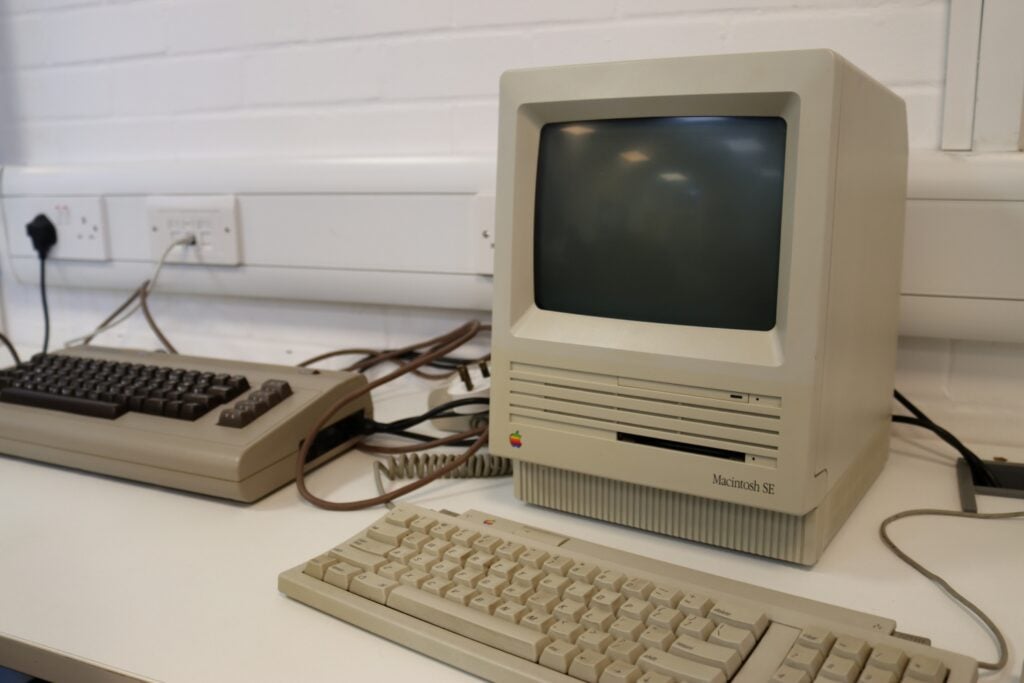
Why did you shift from teaching in secondary school to Further Education?
“I think that the T level and the Level 2 qualifications that we’ve now shaped and deliver here are a lot more in line with what’s going to be expected of a student when they would go to apply for a job.
“If someone’s done a GCSE in Computer Science and they go and apply for IT Support as a role, they’re not going to be particularly ready. Whereas we’ve had employers say to us that our T level students are above what they would expect of a trainee that they would normally take on because of the content in the course and the experiences that they’ve had as part of it.
“I felt that the courses were much more industry appropriate compared to the secondary education offering.”
How do you design your curriculum?
I don’t tend to teach like a sequence of units. I teach with a set of activities or a project over a few terms that match up with the various assessment points and criteria as we go. So you can teach it like unit 1, 2, 3, 4, 5, but I feel that that kind of misses the context.
“I try to blend it into a long term simulation and IT Support role, essentially. I had them pulling everything from scratch, fit the computers, connect them, build the network, create the cables, set up all the machines, install set pieces of software and that then ended up being the computer system my T-level students used for their assessment.”
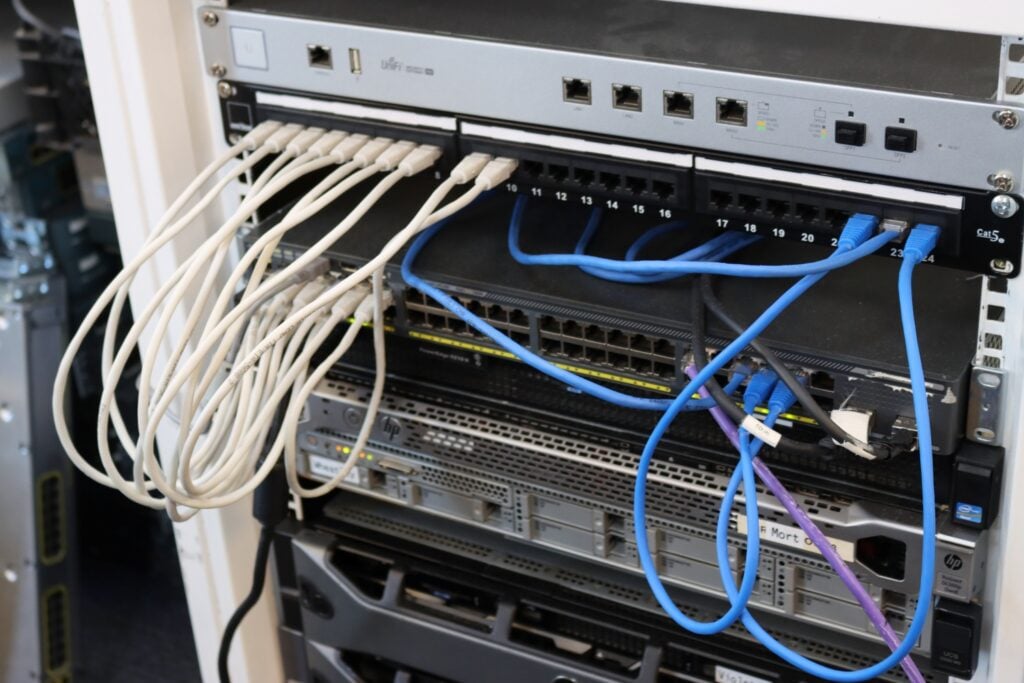
What opportunities have you found to support your students’ success?
“We’ve got an employer that’s taking four students for a day experience as working as a managed service provider technician. They’re going to be going out for the day to work with them and do a full day of IT support work. The T-Level students are doing their work experience placements in IT support as well.
“We’ve had some good successes of students actually going into working for companies they’ve done experience with, which has been really cool.
What sort of student would do well in your courses?
“Ideally, they’d have an interest in how a machine or computer works or what’s broken or what’s gone wrong with it. They’d benefit from an interest in repair and fixing technology and current computing issues. They don’t need to be the most confident, but to be inquisitive.
“I have students that will come in and say, ‘Did you see this thing in the news that’s happened? We can have that discussion. But generally having an interest in how machines work and to ask questions, makes for a good student.”
Do you want to learn more about IT Support and the world of computer networking and security? Explore our Computing and Digital courses and apply today.
